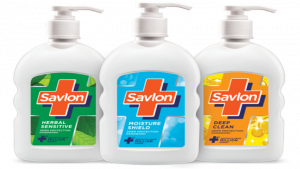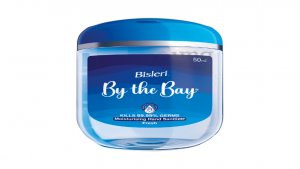How companies adapted to the new normal amid the pandemic
ITC's hygiene brand Savlon recently crossed valuation of Rs 1,000 crores in terms of consumer spends, backed by heightened demands for hygiene product
- Noopur Praveen
- Last Updated : July 19, 2021, 11:23 IST

The Covid-19 pandemic has had a domino effect on various sectors like healthcare, hospitality and tourism. It changed consumer behaviour and shopping patterns drastically. As the number of cases in the second wave reduces, people hoped for things to turn pre-2020 yet again. However, corporates have realised there’s no going back from here. In fact, one should note how top companies have adapted to the new normal in terms of branding and offerings that suit their customer in the times to come. The pandemic has pushed brands to outperform their own limitations and survive the new reality.
“I think brands cannot isolate themselves from the reality on the ground. Given the grim situation because of the pandemic, it is appropriate that businesses rework their offerings to fit in with the new reality but at the same time stay sensitive to the larger concerns of consumers,” said Lloyd Mathias, business strategist, investor and former Asia marketing head at HP.
He also said that when Covid-19 first broke early in 2020, many brands were quick to roll out campaigns encouraging masking up, sanitisation, and maintaining social distancing, “However these were largely tactical in nature and few focused on the larger issue of making personal hygiene and building immunity an integral part of our lives.”
Rise of Savlon

Courtesy: ITC
Personal hygiene has become the top priority for everyone in the battle against Covid-19. Following up on that, Indian conglomerate ITC’s hygiene brand Savlon recently crossed a valuation of Rs 1,000 crores in terms of consumer spends, backed by heightened demands for hygiene products.
“Savlon was successfully extended from an antiseptic liquid brand to also include hand hygiene with a range of innovative formats. During the pandemic, the brand was successfully extended to include surface hygiene with several launches like surface cleaners, cloth disinfectant sprays, wipes and masks,” Sameer Satpathy, divisional chief executive, Personal Care Products Business, ITC was quoted by the Financial Times.
Bisleri hand purifiers

Courtesy: 1mg
Another big industry player to enter the hygiene segment is Bisleri. On July 15, the famous packaged water company announced its foray into the personal hygiene segment with the launch of Bisleri hand purifiers.
“There has been exciting growth in the personal hygiene segment triggered by increasing health and hygiene concerns. We also learnt from consumer research that needs have evolved beyond just protection against germs – consumers were seeking products that provide moisturization and offer refreshing fragrances. We developed Bisleri hand purifiers with these enhanced features in premium packaging, to provide a superior experience,” Angelo George, CEO at Bisleri International said in a press statement.
Hindustan Unilever has also amplified the production and branding of its blue-eyed product – Lifebuoy to suit the needs of the customer.
“Many brands have also altered their offerings to address consumer concerns for increased need for hygiene. So brands like Lifebuoy who launched campaigns encouraging hand washing or Bisleri water quickly launched sanitizers leveraging their distribution reach and brand trust. Some of these brands have ensured the relevance of their products by tweaking the value propositions to address Covid related concerns,” Mathias observed.
Brand motto: Safety first

Courtesy: Swiggy India
Meanwhile, brands have realised that customers like to rely on services that value their safety and make it a priority today. Reinforcing safety-first messages with on-ground application can prove to be a testimony of brand value. This is probably the reason why cab services like Ola and Uber have based their ad campaigns entirely on customer safety for a while since the pandemic hit. Even restaurant chains and online food delivery apps like Zomato and Swiggy make it a point to highlight their safety standards on their platforms.
Having said all that, there is no guarantee whether the new normal will last. No matter what the future holds, brands must evolve and their business campaigns must depict the time it has survived.
Download Money9 App for the latest updates on Personal Finance.
Related
- होंडा ने हेडलाइट समस्या को ठीक करने के लिए वापस मंगवाई CB300R मोटरसाइकिलें
- RBI ने लगातार दूसरी बार रेपो दर में कटौती की, कर्ज होंगे सस्ते
- Tata Motors की वैश्विक थोक बिक्री चौथी तिमाही में 3% घटकर 366177 इकाई
- सुरक्षा मानदंडों को पूरा करने की बढ़ती लागत की वजह से दाम बढ़ा रही हैं कार कंपनियां
- ओला इलेक्ट्रिक ने S1 Zen3 स्कूटर की आपूर्ति शुरू की
- बासमती चावल पर GI टैग पाने के लिए भिड़े भारत- पाकिस्तान, क्यों खास है यूरोपियन यूनियन की ये मुहर

